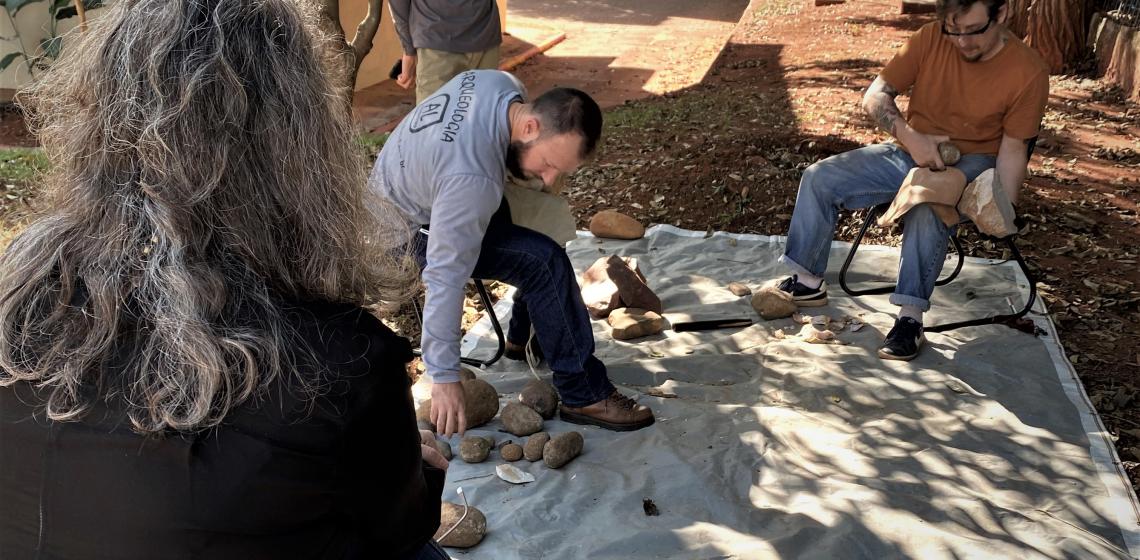
PUC Goiás is the first higher education institution of central Brazil, founded in 1959, when it was called University of Goiás. In 1971, it began to have the term "Catholic" in its name. In 2009, its fiftieth anniversary, came the pontifical recognition.
The Goiás Institute of Prehistory and Anthropology (IGPA) is an academic unit of PUC Goiás. The Laboratory has a rich academic tradition spanning 50 years, marked by significant contributions in the fields of Archaeology, Anthropology, Environment, and Audiovisual Documentation. The members compose the graduation course in Archaeology and the postgraduate program in History (PPHist).
The Cerrado archeology laboratory (LARC, Laboratório de Arqueologia do Cerrado in portuguese) is linked to IGPA and PPHist. The team is composed of researchers and students from PUC Goiás, other national and international institutions and is led by Dr. Sibeli Viana.
The members of LARC understand archaeology as a critical and reflexive discipline, with potential to establish interculturalities among people in many temporalities. In this sense, The Laboratory's focus is on conducting archaeological research on the deep history and historical periods of the Central-West region of Brazil, constituted primarily by the Cerrado biome, and its possible correlations with other regions of Brazil and South America.
Our research involves exploring artefact production and handling techniques, as well as examining pictographs and conducting zooarchaeological analysis, with the goal of understanding the lifestyles of groups and human settlement patterns throughout South America. We understand that experimental archaeology is an important tool to enhance various research in this perspective. Experimental activities especially subsidise research related to lithic technology and ceramics. We focus on pre-established protocols and methodology, to undertake meaningful experimental investigations that aim not only to achieve the final product (the replica), but also to record the whole chain of gestures, intentions and decision-making involved in the process. In this same perspective, we seek to develop the use of the “replicas”, focussing on understanding their effect on materials and vice versa, while developing handling techniques. Experimental archaeology is also part of the teaching program of the lithic technology disciplines, allowing students to experience modes of production and the dynamics of knapping rocks.
